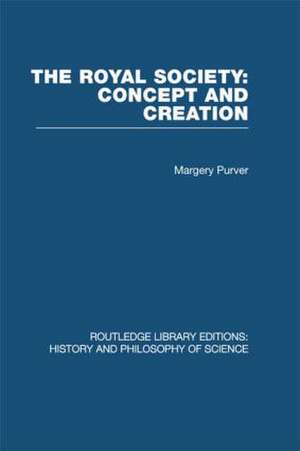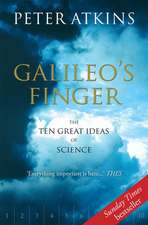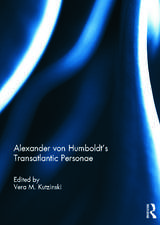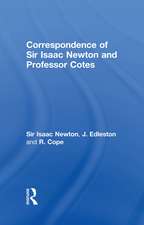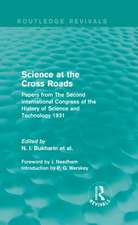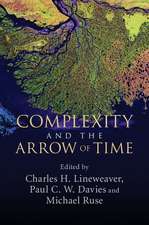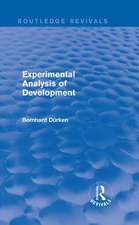The Royal Society: Concept and Creation: Routledge Library Editions: History & Philosophy of Science
Autor Margery Purveren Limba Engleză Hardback – 18 aug 2008
| Toate formatele și edițiile | Preț | Express |
|---|---|---|
| Paperback (1) | 414.32 lei 6-8 săpt. | |
| Taylor & Francis – 7 aug 2013 | 414.32 lei 6-8 săpt. | |
| Hardback (1) | 1046.46 lei 6-8 săpt. | |
| Taylor & Francis – 18 aug 2008 | 1046.46 lei 6-8 săpt. |
Din seria Routledge Library Editions: History & Philosophy of Science
-
 Preț: 241.11 lei
Preț: 241.11 lei - 34%
 Preț: 987.58 lei
Preț: 987.58 lei -
 Preț: 409.48 lei
Preț: 409.48 lei -
 Preț: 190.51 lei
Preț: 190.51 lei -
 Preț: 193.40 lei
Preț: 193.40 lei -
 Preț: 408.54 lei
Preț: 408.54 lei -
 Preț: 481.58 lei
Preț: 481.58 lei - 30%
 Preț: 336.55 lei
Preț: 336.55 lei -
 Preț: 411.42 lei
Preț: 411.42 lei -
 Preț: 410.28 lei
Preț: 410.28 lei -
 Preț: 406.59 lei
Preț: 406.59 lei - 16%
 Preț: 226.72 lei
Preț: 226.72 lei - 34%
 Preț: 1047.71 lei
Preț: 1047.71 lei - 12%
 Preț: 299.52 lei
Preț: 299.52 lei -
 Preț: 215.72 lei
Preț: 215.72 lei -
 Preț: 424.87 lei
Preț: 424.87 lei -
 Preț: 413.33 lei
Preț: 413.33 lei - 35%
 Preț: 1047.35 lei
Preț: 1047.35 lei - 36%
 Preț: 988.47 lei
Preț: 988.47 lei - 35%
 Preț: 1047.90 lei
Preț: 1047.90 lei - 34%
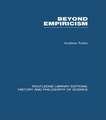 Preț: 1044.84 lei
Preț: 1044.84 lei - 20%
 Preț: 143.04 lei
Preț: 143.04 lei - 24%
 Preț: 337.22 lei
Preț: 337.22 lei -
 Preț: 436.99 lei
Preț: 436.99 lei - 34%
 Preț: 1577.69 lei
Preț: 1577.69 lei -
 Preț: 413.33 lei
Preț: 413.33 lei - 34%
 Preț: 708.82 lei
Preț: 708.82 lei -
 Preț: 404.68 lei
Preț: 404.68 lei - 36%
 Preț: 1046.09 lei
Preț: 1046.09 lei - 36%
 Preț: 986.45 lei
Preț: 986.45 lei - 34%
 Preț: 1046.82 lei
Preț: 1046.82 lei
Preț: 1046.46 lei
Preț vechi: 1580.81 lei
-34% Nou
Puncte Express: 1570
Preț estimativ în valută:
200.25€ • 214.13$ • 166.96£
200.25€ • 214.13$ • 166.96£
Carte tipărită la comandă
Livrare economică 17 aprilie-01 mai
Preluare comenzi: 021 569.72.76
Specificații
ISBN-13: 9780415474948
ISBN-10: 0415474949
Pagini: 298
Dimensiuni: 156 x 234 mm
Greutate: 0.67 kg
Ediția:1
Editura: Taylor & Francis
Colecția Routledge
Seria Routledge Library Editions: History & Philosophy of Science
Locul publicării:Oxford, United Kingdom
ISBN-10: 0415474949
Pagini: 298
Dimensiuni: 156 x 234 mm
Greutate: 0.67 kg
Ediția:1
Editura: Taylor & Francis
Colecția Routledge
Seria Routledge Library Editions: History & Philosophy of Science
Locul publicării:Oxford, United Kingdom
Public țintă
Postgraduate, Professional, and UndergraduateCuprins
Part One: 1. The Validity and Significance of Sprat’s History as a Source. 2 A New System of Natural Philosophy I Francis Bacon . 3 A New System of Natural Philosophy II The Royal Society. 4The Oxford Experimental Science Club. 5 Establishment as a Royal Foundation. 6 The Religious Policy of the Royal Society. Part Two:1. John Wallis’s Accounts of the Origin of the Royal Society. 2 The Royal Society and Gresham College. 3 The Invisible College. 4 The Royal Society and "Pansophia". Conclusion
Descriere
This volume investigates its underlying purpose and creation, at the same time uncovering the real nature of its debt to Francis Bacon and its role in the scientific revolution of the seventeenth century.
